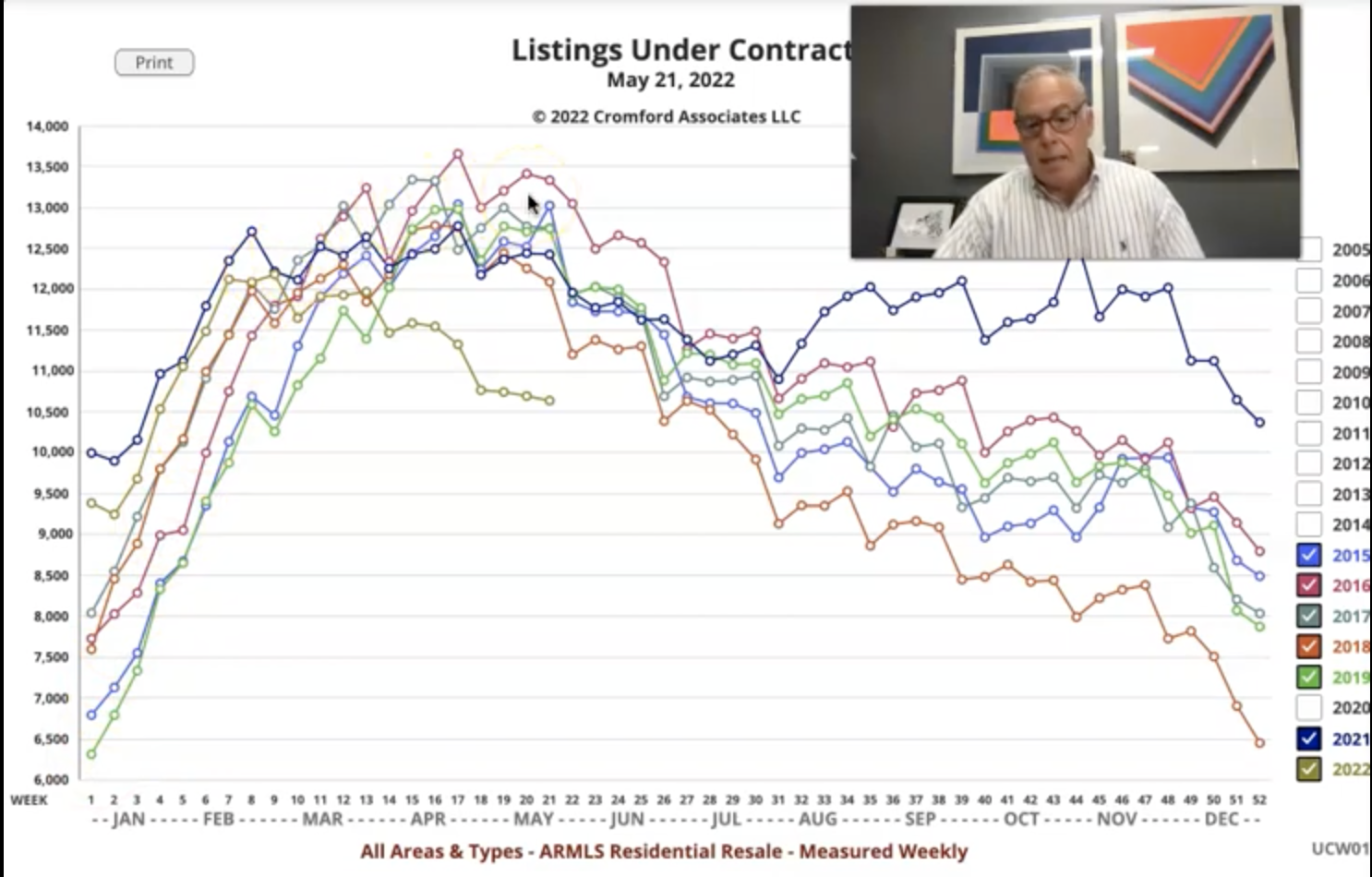July 29th, 2022 Interest rates, list prices vs sale prices
/July 29th quick Phoenix Market Update July 29th, 2022. Fed rate hike implications and reduction in list prices versus sale prices.
Numbers Don't Lie July 21, 2022
/Numbers don't lie. They actually tell a story about the Greater Phoenix Housing Market. Appreciation, Interest Rates and Affordability are 3 key numbers in this market.
How high is the inventory of homes? July 18, 2022
/Greater Phoenix's homes for sale continue to climb. However, looking at the past 20 years it may not be as shocking some want you to believe.
Read MoreJune 13th, 2022. Yes it's Hot, Market Update
/The number of home for sale in Greater Phoenix is on the rise, average asking price per foot for homes is decreasing and odds of a home selling are decreasing.... Let's take a deeper look on what is happening in the Phoenix Real Estate Market June 13th, 2022.
Read More2022 Start of Summer Update, Lots of Changes!
/The fast pace of change in Greater Phoenix's housing market is extreme. Get caught up quickly on what is happening right now (June 3rd, 2020) in the market.
Curious about your neighborhood or a part of town you are considering? Let's connect. Text me at 602-570-5905 to schedule a time to talk.
Read MoreContract Ratio drops 100 points in 6 weeks
/The Phoenix housing market is changing. The Contract Ratio is a good indicator to keep your eye on. What the contract ratio is and what it means to you in under 2 minutes.
Are you sitting on a gold mine?
/> Are you sitting on a gold mine? And what will it cost you to cash out on it? In this month’s market update, let’s talk about a good problem to have. This is John Schloz with HomeSmart. Home values have skyrocketed over the last few years. Appreciation over the last two years alone has averaged around 44% . Whenever you purchased your home, you probably have a large amount of equity in it right now. Your home is one of the few assets you can profitably sell without paying capital gains tax. Within limits. As long as you’ve owned the property more than two years, and lived in it as your primary residence for at least 2 of the last 5 years, a married couple filing jointly has a maximum $500,000 of tax free gains. For single people, or married couples filing separately, the exclusion is $250,000. Anything over that will be taxed up to 20% - based on income. Here’s where the problem comes inA median priced home in April 2012 - ten years ago- was $138,000. Based on annual appreciation, that home today may be worth nearly $431,000 - more than tripling in value with a gain of nearly $300,000. If that home is owned by a single person, they would have capital gains tax to pay if they sold the property. Homes purchased only 5 years ago have nearly doubled in value. A $500,000 purchase in 2012 would have appreciated over 1 million dollars in value There is a home in Gilbert that sold new 10 years ago for $533,000 and recently sold for nearly 1.5 Million dollars. That kind of profit is great - paying capital gains taxes on it, isn’t. If you are a homeowner who is reaching their $250,000 or $500,000 tax-free profit limit you might consider selling to take advantage of this tax exemption. You can roll that money into new home and start the equity growth all over again. There are no limits to the number of times you can claim this exemption. The appreciation numbers I’ve mentioned are valley averages. Different areas appreciate at different rates. If you’re curious as to how much your home has actually appreciated, please give me a call and let’s protect your equity from Uncle Sam.
Solid Offers with Buyer Protections
/It’s probably no surprise to you that the real estate market in Arizona (and most of the country) is insanely hot. We’re seeing buyers and sellers make mistakes in this market and wanted to use this months market update to educate you on some issues regarding the real estate transaction you may not know. The is John Schloz with this month’s real estate market update. When a seller lists their home in Arizona, they can give their agent permission - or withhold permission - to disclose the terms of any offers to other agents. Allowing an agent to disclose the terms of other offers gives that agent the ability to create a bidding war, often bringing in better offers in a competitive bidding situation. And, Realtors are bound by the code of ethics to treat all parties honestly, so we must be truthful in negotiations. Complicating matters, in Arizona, Dual Representation is permitted, allowing a broker to represent both the buyer and the seller in the transaction. If an agent receives an offer from another agent in the same brokerage however, laws of dual representation limit the agent on disclosure, since we must protect the interests of all represented parties. Some buyers these days are going straight to the listing agent hoping to garner an advantage in negotiations. However, depending on the ethics and integrity of that agent, this can also hurt that buyer when it comes to full representation. Make sure your agent a trusted advisor. Buyers in today’s market are waiving their rights from the contract. The AZ standard residential purchase contract has many protections written in for both buyers and sellers. The standard contract is written as an AS-IS contract, putting the obligation of due diligence on the buyer. State law requires sellers to disclose any material facts that might negatively affect the value of the property. Waiving the use of the Seller Property Disclosure form does not alleviate the seller from that obligation. Buyers waiving their rights to an inspection can put themselves in a very costly and dangerous position. If a buyer is looking for ways to compete, they could waive lines 273 - 284 of the contract still allowing them to inspect the property but retaining the right cancelling if something unacceptable comes up, but letting the seller know the buyer will not ask for repairs following the inspection. It’s a tricky market. Make sure you work with an agent who understands the contract and the risks involved in a real estate transaction. Make sure you work with a trusted advisor. Like me, John Schloz HomeSmart
First Update of 2022
/2022 is starting out as a fast paced housing market. Here is the scoop in 3 minutes.





